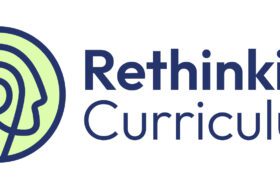Education is key for ethnic minority communities in the UK as a gateway for opportunities through which young people acquire skills, knowledge, and experiences. Yet in the U.K, education is highly unequal and the disproportionality in the school teaching workforce in England’s schools have drawn little interest from policymakers and education practitioners.
This webinar addresses the noted gap in the literature and provides trends and empirical evidence in England’s teachers’ workforce by ethnic background and its disproportionality when compared to the pupils they teach. Our main data source was the School Workforce Census, the largest and most comprehensive source of data on teachers available in England. It used the diversity gap and the teacher-student parity index, for comparing the proportions of teachers and students from different ethnic groups to gain an understanding of the demographic reality of today’s schools. The main findings of the research confirm that the education system in England is characterised by ethnic disproportionality in the school teaching workforce and the ethnic background of the teaching staff does not mirror the profile of the pupils. The evidence clearly shows that there is a growing mismatch between the ethnic diversity of the pupil population and that of teachers in their schools. This is detrimental to the growth and learning of students and to improve the recruitment, retention, and training of the ethnic minority teaching workforce in England schools.
In this webinar, we present the findings of the research and the key message for teachers, policymakers, and school practitioners.
Our Presenters
Professor Feyisa Demie, Honorary Professor at Durham University and Head of Research in Lambeth LA, will introduce the research and the key findings of the study including why teachers diversity matters and the evidence on the demographic trends and ethnic disproportionalities in the teaching workforce in England schools.
Feyisa Demie (FRSA) is an Honorary Professor at Durham University School of Education and is the head of research and adviser for school self-evaluation at Lambeth local education authority. He has worked extensively with Local Authorities, government departments, schools, and school governors for over 27 years in the use of data and research to raise achievement. As an education adviser he works with schools covering all phases of assessment, from foundation stage, KS1, KS2 to GCSE. He also runs school-focused training programmes and annual national school improvement conferences at the UCL Institute of Education to support school self-evaluation for headteachers, teachers, governors, and policymakers. With longstanding research interests on what works in raising achievement in schools and equity issues in education, he has written a number of books, research reports and peer-reviewed articles on school improvement, ethnicity, English as an additional language, school exclusions, disadvantaged students, and diversity in the teaching workforce. For details of his research and publications see https://www.durham.ac.uk/staff/feyisa-demie/#publications and https://www.lambeth.gov.uk/rsu/research-reports
Professor Beng Huat See, Durham University will share the evidence of the changing teaching workforce by regions in England and the disproportionality of applicants accepted to teaching training including the conclusions of the overall study and implications for policy, practice, and future research.
Beng Huat See is Professor of Education Research at the Durham University School of Education and Deputy Director of the Durham Evidence Centre for Education. Her current research interests focus on improving teacher supply, teacher development and teacher quality as well as identifying ways to enhance students’ learning and wider outcomes. She is currently leading an ESRC project comparing teacher education policies in OECD and partner countries to identify key political, cultural, institutional and economic drivers of teacher shortages. She has also led another large project, which aims to understand the important determinants of teacher shortages and to identify promising approaches to attract and retain teachers. She is now co-leading two other research projects, one of which is to improve the selection and recruitment of quality teachers and the other is looking at ways to improve the recruitment of ethnic minority teachers in England. Her expertise is in the use of multiple designs: rigorous reviews and synthesis of evidence in education, evaluation of large-scale RCTs and re-analysis of secondary data.
Dr Lisa-Maria Müller, Head of Research, Chartered College of Teaching – Dr Lisa-Maria Müller leads on the internal and externally funded research projects. She is lead author of the Education in Times of Crisis reports which explored the potential impact of school closures on students and teachers, teachers’ experiences with distance learning, how they relate to existing research on the topic and what this means for the future of education. Lisa-Maria has also served as expert advisor on the OECD PISA 2025 Language Measure, is co-author of a literature review informing the deliberations of UNESCO CEART on preparing teachers for digital and diverse classrooms and has led a Wellcome Trust funded project exploring the effectiveness of journal clubs as teacher CPD. Currently, Lisa-Maria is leading on an evaluation of blended approaches to teacher CPD funded by the Paul Hamlyn foundation and research informing the organisation’s policy work on teacher wellbeing. Prior to joining the Chartered College of Teaching, Lisa-Maria was postdoctoral research associate at the Universities of Cambridge and York, working on projects relating to foreign language learning. Lisa-Maria is a qualified MFL teacher with teaching experience in secondary schools in Austria and England and has obtained her PhD from the University of Vienna in which she explored the similarities and differences between typically developing bilingualism and bilingual language impairment.
This is a FREE event for Chartered College members (log in to MyCollege and register here)
Non members book on the link below = £30 (plus fees)
Before booking, please read the ‘frequently asked questions’





